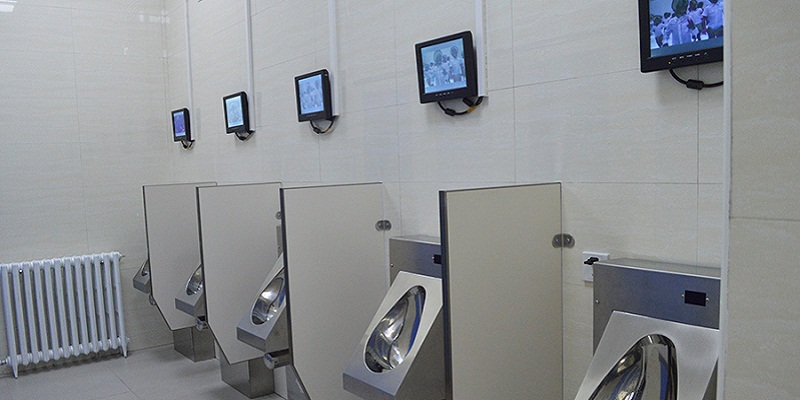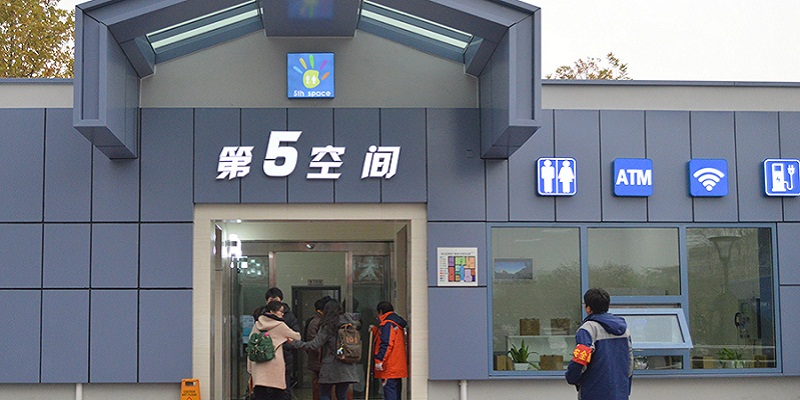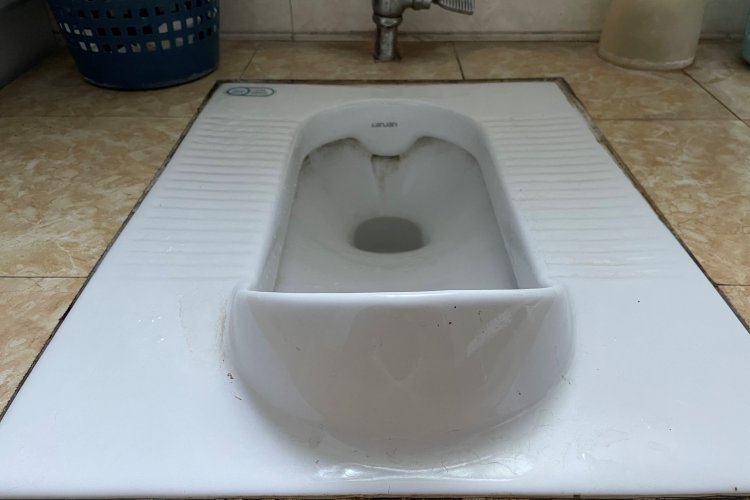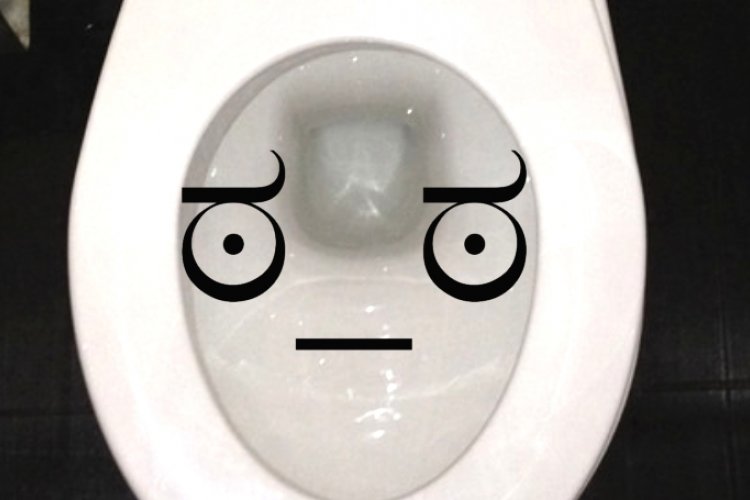Pee Even More Freely with Beijing's 700 Upgraded and New Public Toilets
While the citizens of the United States are embroiled in a controversy over who gets to pee in what public bathroom, we here in the glorious, utopian capital of Beijing can rest on our laurels that our seemingly ubiquitous stock of public toilets are due for another major upgrade.
One of the wonderful things about Beijing (especially for those of us with tiny, hyperactive bladders) is the amazing number of public toilets at our disposal.
Sure, many of them have pee all over the floor or footprints on the seats, but try finding anywhere legal to pee in a metropolis like New York and you will be (quite literally) shit out of luck.
So it is with relieved urethras and relaxed sphincters that we welcome yet another round of planned upgrades to the Beijing bog-osphere.
You know the routine: you're out drinking mass quantities or sampling street food you aren't able to entirely identify and all of a sudden, nature calls. Modesty prevents you from copping a squat in the middle of the street like a split-pants toddler, so you quickly seek out a public toilet, a department store, or the familiar sign of McDonald’s.
Hygiene, it must be said, often takes a back seat to utility or urgency in Beijing, hence the disaster that is public rest rooms. However, the city's bigwigs totally understand this (after all, even the mightiest of officials need to relieve themselves), so they are often looking for upgrades.
On April 21, Beijing's Municipal Commission of City Administration and Environment announced that there’ll be another set of upgrades to the city's stock of public toilets by October.
The good news for the ladies: the golden ratio of female to male stalls will be 1.5 to 1 (because we all know ladies need more time to shop online with their phones while doing their business).
And during the 13th Five Year Plan, the goal is to make sure all citizens are 300 to 500 meters from a rest room at all times. This means maximum spincter-clenching time when a bout of explosive laduzi hits from that mystery street snack you consumed would be a mere five minutes.
The new standards are expected to be applied to 700 public toilets this year. Upgrades will include temperature control (no lower than 12 degrees in winter and no higher than 30 degrees in summer), and the addition of water-saving technologies.
Last November, the first sample of a 21st century Beijing toilet was built in Fangshan. It has wi-fi and an ATM. And by the end of this year, city officials aim to build 100 more like it. Hooray! I know the first thing I think of after relieving myself is to make a deposit of another kind.
But hutong residents have reason to tame their excitement, as it'll still be a few years before all the city's shitters will get the upgrade. Officials say there are 200-300 latrine pits in the hutong areas that the city might not get to before 2018.
By the way, should you have trouble finding a spot, there is of course a public toilet app (do a search for 公厕指南 in the Android or iPhone app store and you'll find it). Simpler still, try a Baidu maps search for 厕所, or search for "rest room" on the iPhone's native English map.
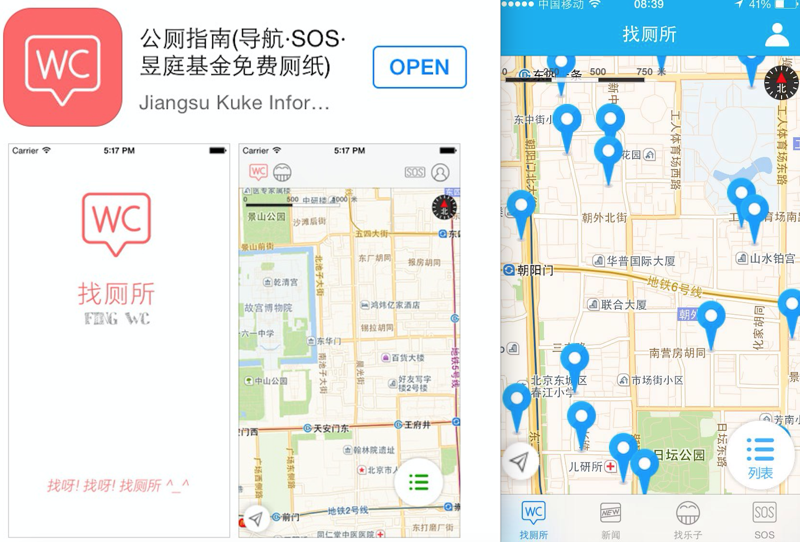
While we warmly welcome toilets that don't stink and don't feature puddles of urine everywhere, we think perhaps city officials are going a little too far with all of this heating and wi-fi-enabling.
After all, in this day and age of ubiquitous smart phone ownership, do we really want temperature-controlled, wi-fi-equipped public bathrooms? The amount of time people are currently willing to squat over an open pit filled with stinking human waste in sub-zero temperatures just to watch one more stuttering Youku clip delivered in 0.5-second intervals over choppy 3G connections has us shuddering to think of the lineups that will form in these new super-comfy public toilets.
More stories by this author here.
Email: tracywang@thebeijinger.com
Twitter: @flyingfigure
Instagram: @flyingfigure
Photos: The Beijing News
Related stories :
Comments
New comments are displayed first.Comments
![]() Expert
Submitted by Guest on Fri, 04/29/2016 - 11:40 Permalink
Expert
Submitted by Guest on Fri, 04/29/2016 - 11:40 Permalink
Re: Pee Even More Freely with Beijing's 700 Upgraded and New...
Let's hope these wonderful new 'offices of convenience' do not become centres for drug dealing and other crimes as happens in some other countries. Proper policing is therefore essential.
Validate your mobile phone number to post comments.

